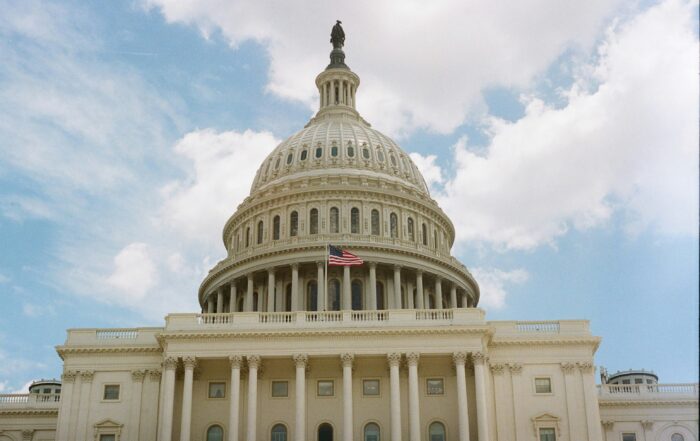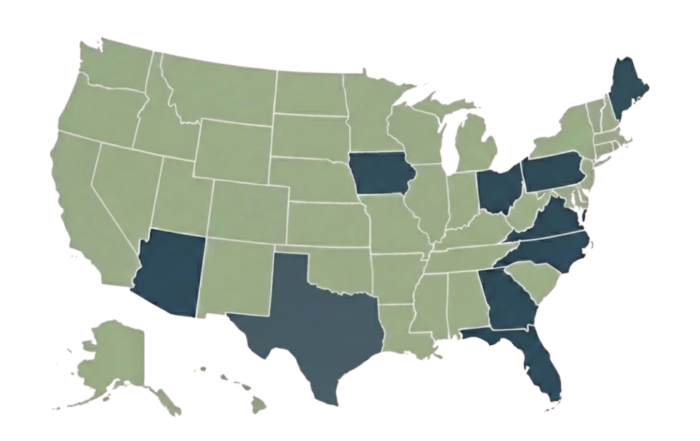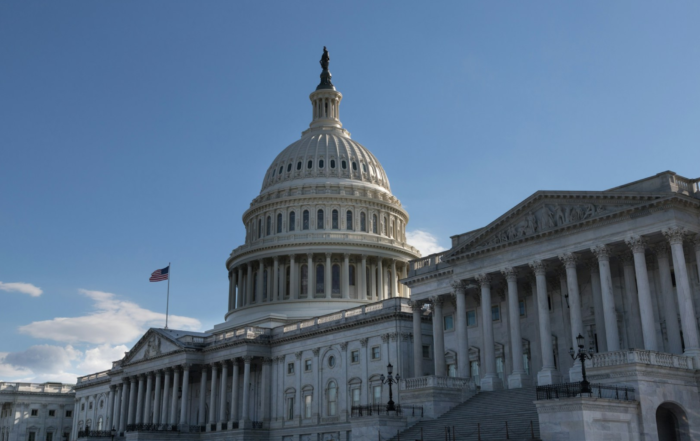
Chris Moyer
Founder & President
From panels to conversations across NYC, our colleagues Morgan Caplan and Dan Crawford spent Climate Week exploring how innovation, policy, and storytelling are shaping the clean energy transition. Here’s what stood out to us:
Dan Crawford, Senior Vice President:
I got back from New York Wednesday night, and while I was only in town for two nights, I managed to walk approximately 900 miles between panels, receptions, and other events in the city. Here are some broad themes that stuck out to me.
Trump Dominated Every Conversation, but There’s Still Plenty of Optimism
The backdrop to every conversation was the Trump administration’s unrelenting attack on clean energy and climate progress. It’s true that the U.S. government’s abrupt 180 on support for climate has advocates more than a little worried. That said, while it may have been a coping mechanism, there was still plenty of optimism to go around. The energy transition is still happening, even though administration policy might slow it down.
Clean Tech Is Winning Out on the Economics
From EVs to solar and batteries, clean tech isn’t just better for the climate: it’s better, period.
There was a clear sense that, after years of being seen as an expensive and unreliable alternative, clean tech is winning out on the economics. Yes, the IRA tax credits made it cheaper and easier to get projects financed and built, supercharging clean energy deployment. But even with many of those credits off the table, solar + storage is still the cheapest and fastest way to get electrons on the grid, there are investments to be made, and EV sales are trending up.
I was struck by how, at a panel on EVs, the focus wasn’t on how good the cars are for the planet but on how fun they are to drive. They’re fast, they’re reliable, and come with fewer hassles than ICE vehicles. People are increasingly embracing clean tech not out of climate concerns but because they want the best.
Energy Prices Are Set to Dominate the Political Conversation
For years, the argument for investing in clean energy was all about jobs. But with low unemployment, that argument falls flat. Industry leaders and climate advocates are keenly aware that electricity costs are going to be the key issue in the years ahead. Against that backdrop, investing in clean energy just makes sense—and voting for policies that hamper its deployment will be a political liability.
Morgan Caplan, Senior Communications Manager:
Of course, AI was everywhere this week. I joined panels that focused on how large companies are using it to become more sustainable — optimizing energy use, improving efficiency, and accelerating clean tech solutions. AI is the flashy conversation, and while people are in awe of all its capabilities, there was one question they failed to address: how do we actually power all this AI? The energy demand to run these systems at scale is huge, and if we don’t address it, all the energy gains could be undercut.
Even with that challenge, there are bright spots. Members of Congress in SEEC are still heading to COP30, showing that climate leadership and innovation persist—even as some national leaders dismiss climate science. Geothermal is another highlight: a rare area of bipartisan progress, with companies moving closer to delivering real electricity and heat.
But technology alone isn’t enough—how we communicate about clean tech matters just as much. The words we use shape how people perceive these solutions, and perception drives action. Even small shifts in language send a clear message. Whether a project gains community support, influences state policy, or attracts investment often depends on how clearly and thoughtfully it’s communicated.
The lesson from Climate Week is clear: technology, policy, and leadership are critical, but the stories we tell about clean energy will determine whether these solutions succeed. Bright spots exist, from AI to geothermal, but turning potential into real impact depends on communication, trust, and clarity.
Check out our recent insights and conversations:
Sign up for our newsletter
Receive updates on our work, industry news, and more.




